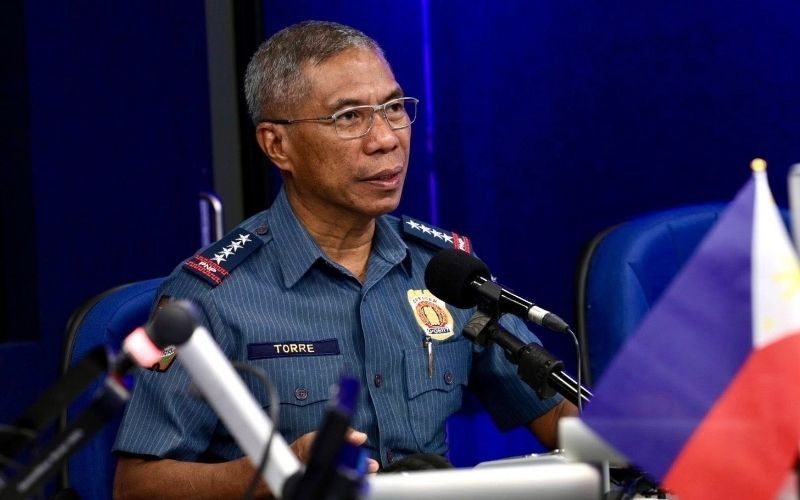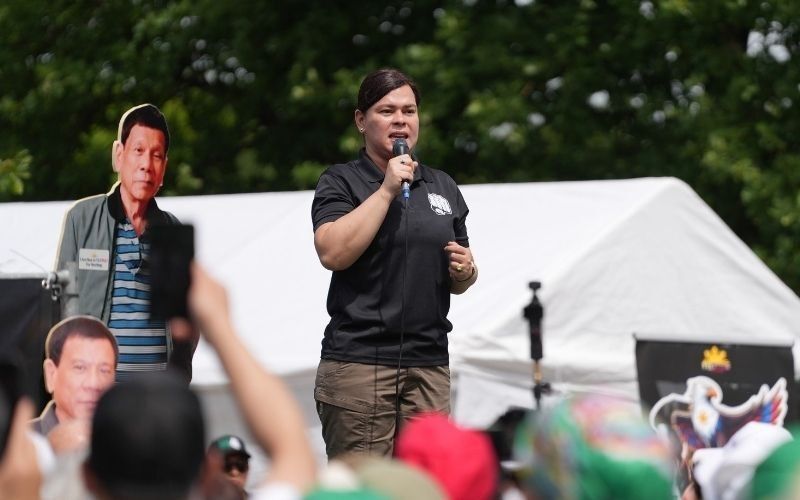
Upgrade to High-Speed Internet for only ₱1499/month!
Enjoy up to 100 Mbps fiber broadband, perfect for browsing, streaming, and gaming.
Visit Suniway.ph to learn
Cristina Chi - Philstar.com
April 16, 2025 | 1:10pm
High school students are seen waiting in line, catching up with their friends and classmates and enjoying their time in front of the Marikina High School in Marikina City after two years of online classes on Nov. 2, 2022.
The STAR / Walter Bollozos
MANILA, Philippines — The Department of Education will allow police officers to be deployed and security cameras to be installed outside large "high-risk" schools as its immediate response to the rise in bullying cases this school year.
Education Secretary Sonny Angara announced the planned security measures after holding DepEd's largest executive committee meeting yet with other agencies on Monday, April 14 — convened after a string of disturbing videos of student violence on campus circulated online.
Bullying cases have climbed almost every year since 2013 based on DepEd data, but officials believe cases have been underreported due to the lack of guidance counselors who can help schools monitor incidents.
Angara on Monday vowed the department would deal with the bullying problem in schools with urgency and "sustained action," adding that the safety of students "cannot wait for perfect conditions."
Data presented at the meeting showed the National Capital Region alone recorded 2,500 cases of bullying in the current school year — up from 2,268 in the previous year.
Cross-agency effort
DepEd this time is enlisting the Philippine National Police to help monitor school perimeters and intervene in serious bullying incidents that cross into criminal behavior, according to its statement on Wednesday, April 16.
Besides increased police visibility around urban and high-risk schools, DepEd has also approved the installation of CCTVs — all in adherence to its policy on data privacy and keeping schools as "zones of peace."
DepEd's policy on schools as zones of peace prohibits cops from being stationed inside campuses. The closest they can get is to be "situated proximate to the school and not inside the school."
Other agencies have also proposed their own programs and plans to prevent a further rise in bullying incidents.
The Department of Social Welfare and Development committed to investigate cases reported to its field offices and establish a new office aimed at addressing family problems that may influence student behavior.
"To effectively combat bullying, we need to work not just inside the schools, but also in the households and communities where our learners come from," Angara said.
Meanwhile, the Department of the Interior and Local Government proposed "activating" the Comprehensive Barangay Juvenile Intervention Program, which aims to prevent bullying at the community level through diversion and rehabilitation efforts.
Since being signed in 2013, Republic Act 10630 or a law strengthening the Juvenile Justice and Welfare Act has required provinces, cities, municipalities and barangays to develop their own juvenile intervention program.
DepEd is also eyeing the deployment of barangay tanods to keep watch over schools and the "possible assignment of TUPAD beneficiaries as school watchmen through the Department of Labor and Employment."
DepEd is also looking to tap the Department of Health and other medical associations to provide counseling and psychological first aid to students.
Curriculum reforms
As part of long-term solutions, DepEd is working with experts from the University of the Philippines College of Education and Ateneo de Manila University to enhance its Values Education and Good Manners and Right Conduct curriculum.
The proposed enhancements will include integrated socio-emotional learning, emotional regulation and conflict management skills for students.
DepEd is also drafting a Default Policy on School Safety and Security that will establish clear procedures for incident reporting, sanctions for offenders, and support services for victims, including psychological first aid and financial assistance.
The inadequate number of guidance counselors has prompted Sen. Sherwin Gatchalian, chair of the Senate basic education panel, to propose increasing the number of "guidance designates" or teachers trained in providing guidance services in public schools as a stopgap measure.
According to DepEd data, 10,412 out of 45,326 schools have no guidance designates for the current school year.

 1 month ago
49
1 month ago
49



